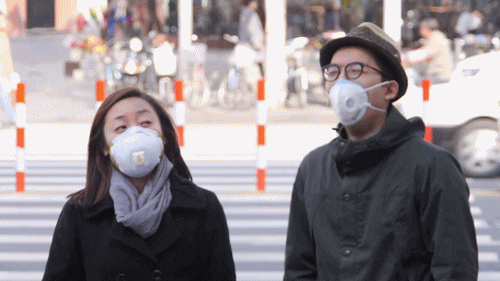As Malaysia is experiencing a third wave of COVID cases, we all have to come together (not literally) to prevent its spread. One of the best things to do at the moment is to go back to the way we were at the beginning of the pandemic. Say, for example, people could again start working from home, minimise their interstate travel, avoid celebrating social events like birthdays and anniversaries. It is very crucial that we follow the protocols of social distancing masks on and also avoiding the public places.

Let’s remember that this pandemic is coming back and not following the basic protocols might cause serious crisis within the country. With the economy at its hinges, we as Malaysians cannot afford another lockdown. This is why, today, we bring you 10 activities that we can partake to avoid the spread of this virus further.

• The virus is air-borne.
• It is said to spread mainly from person-to-person.
• Through respiratory droplets produced when an infected person coughs, sneezes or talks.
• These droplets can land in the mouths or noses of people who are nearby or possibly be inhaled into the lungs.
• Some recent studies have suggested that COVID-19 may be spread by people who are not showing symptoms.
Due our close trade ties with China and Singapore, which top the list of countries with coronavirus, Malaysia could feel the ‘spill-over effects’ of the coronavirus impact. Following the initial preventive measures, the number of Malaysia coronavirus cases had stabilized earlier but have started to rise again. After discovering the 14th coronavirus case in Malaysia that occurred through human-to-human transmission, the government is in talks to implement even stricter control measures to contain further spread. The Ministry of Health has facilitated coronavirus screening at 48 hospitals and announced 26 referral hospitals to treat coronavirus suspected and positive cases.

1. Wash your hands with soap and water for at least 20 seconds after any activity. This includes blowing your nose, coughing, etc. Always wash your hands before eating or cooking.
2. Wear a mask or cloth face covering. A cloth face covering may not protect the wearer, but it may keep the wearer from spreading the virus to others. To reduce the spread of COVID-19, CDC recommends that people wear cloth face coverings in public settings when around people outside of their household, especially when other social distancing measures are difficult to maintain.
3. Maintain social distancing. Work from home if possible and avoid large gatherings, public spaces and public transportation. Keep three to six feet between yourself and others. Avoid social touching, this includes shaking hands, kissing or hugging, instead try a hand wave or a smile.
4. Avoid touching your eyes, nose and mouth. Be mindful to keep your hands away from any location on your face where a virus could enter your body.
5. Clean "high-touch" surfaces regularly. It's still unknown if COVID-19 can spread from hard surfaces to people or how long it may live outside the human body. Take extra caution and clean high-touch surfaces like tables, doorknobs, light switches, desks, toilets, faucets, and sinks with household disinfectants that are appropriate for the surface.
6. Stop sharing. Even though you may usually steal a bite from your kid’s plate or share a dessert with a friend or spouse, now is the time to be selfish with your food. Don’t share any common kitchen objects such as dishes, drinking glasses, utensils, cups, and, of course, food with anyone—even the people in your home. Also be sure to wash any kitchen items thoroughly after use with hot water and soap, or put them in the dishwasher.
7. If you think you have symptoms of COVID-19, Learn more about when to seek care and options for speaking with a caregiver. People who are mildly ill with COVID-19 are able to recover at home. Do not leave, except to get medical care.
8. Avoid any unnecessary travel. While you may be tempted to visit your grandkids or family, don’t travel during this time because it may expose you to someone who may be infected.
9. Prepare for your needs in case you’ll need to stay home for an extended period. Make sure you have enough groceries, household items and medications (including over-the-counter medicines) on hand, and that you know how to order more either online or by making a phone call.
10. Have a plan if you get sick. Talk to friends and family about who can help you if you get sick. Plan who could cook and deliver meals, run errands and even take care of you.

Individuals who are at a higher risk of getting COVID-19 are recommended to take extra precautions to stay safe. This includes individuals who:
• Are over the age of 60
• Have heart disease
• Have diabetes
• Have lung disease, including asthma
• Are taking immune suppression drugs
• If you're at a higher risk of contracting COVID-19, do not travel. Traveling may expose you to someone who may be infected. Make sure you have a plan if you get sick. Talk to your friends and family or you can sign-up for a mobile or online meal delivery service.
• Lastly, another way you can help reduce the spread is by educating others. Share this article with your family and friends so they can also help prevent the people they love from getting sick.
Try not to go out and stay at home. To know more about covid-19 visit https://www.who.int/ Follow our website for constant updates.
Stay indoors, Stay safe!